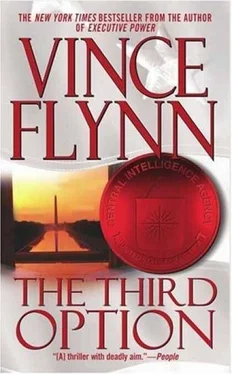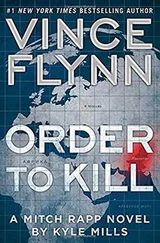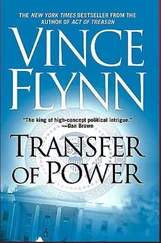The sedan pulled up to a checkpoint manned by die Capitol Hill police. After a brief inspection, they were waved through. Kennedy was dropped off near the ground-floor entrance on die southeast side of the building. She stepped from the car and opened her umbrella. With her leather organizer in her other hand, she walked through the rain and entered the huge neoclassical building, where she lined up to go through the metal detectors. Most of the ground floor of the Capitol was occupied by committee rooms and offices and was not accessible to die general public without a pass. The areas that were accessible tended to be located in the middle of the building and included the Hall of Columns, the Old Supreme Court Chamber, and die Brumidi Corridors. The south wing of the building held the House of Representatives, and the north wing held the Senate. On the second floor were the chambers for both the House and the Senate, along with offices for leadership of both bodies. The Capitol's most identifiable feature, its rotunda, was also on the second floor. The third floor had more committee rooms and offices and the galleries from which visitors could watch the House and the Senate in action. All three of these floors were immaculately maintained.
Kennedy was headed to the fourth floor, which she often thought of as the neglected child of the Capitol. The offices there were far less glamorous, the paint was chipping in places, and water stains on the ceiling were not uncommon. Visitors rarely glimpsed the fourth floor, which was one of the reasons it was chosen as the location for the House Permanent Select Committee on Intelligence. Kennedy walked past Office H-405, which housed the committee's staffers. She opened a door a little farther down and stepped into a tiny waiting area.
There were two people in the room: a staffer sitting behind a reception desk and a Capitol Hill Police officer. The staffer greeted her and told her to take a seat. He picked up the phone and told someone on the other end that Dr. Kennedy had arrived. The man listened for a few seconds and then hung up. Looking at Kennedy, he said, «It'll be a few minutes.»
Kennedy nodded and thought to herself, I'm sure it will. Chairman Rudin was notorious for making CIA employees wait. Kennedy checked her watch. It was 8:56. They'd told her to be there by nine. She would be shocked if she was called in before a quarter past nine. She was right. At 9:24, she was summoned to the inner chamber. The committee room was the smallest in Washington. There was no gallery – no room for reporters to sit and listen. The sixteen members – eight Democrats, seven Republicans, and one independent – sat ten feet in front of the witness table in two rows. There were chairs for staffers behind the top row, and on the wall were the thirteen seals of the government agencies that made up the intelligence community, or IC.
Like the committee room for the Senate, this was also a room within a room. Highly secure, it was swept by technicians from the National Security Agency on a weekly and sometimes daily basis, depending on the business that was being conducted.
Kennedy set her organizer on the table and looked up to see Michael O'Rourke coming toward her. The congressman from Minnesota was the lone independent on the committee. O'Rourke said hello and asked Kennedy how her son was doing. After their pleasantries were concluded, O'Rourke said, «Irene, I need you to be honest with me about something.»
Kennedy studied the young congressman for a second and said, «I'll try my best. What is it?»
«Does the name Mitch Rapp mean anything to you?»
Kennedy studied O'Rourke before answering. Looking over his shoulder at the other committee members, she said, «Maybe you should come out to Langley, and we can talk about this.» Kennedy was fully aware that Anna Rielly and Congressman O'Rourke's wife were best friends. Rapp had kept her in the loop.
«So you know him?»
«I never said that.» Kennedy reached out and touched his arm. «Come see me at Langley, and we'll talk about it.»
O'Rourke nodded. «I'll be out this afternoon, then.»
«That's fine. CaIl my office and see what time works best.» O'Rourke agreed and went back to his seat. One more thing to worry about, Kennedy thought to herself. She looked up and saw Chairman Rudin scowling at a piece of paper. From his perch, he looked down his beaklike nose at Kennedy and said, «You may be seated.»
Congressman Zebarth, the ranking Republican on the committee who sat immediately to Rudin's right, leaned forward and said, «Good morning, Dr. Kennedy. Thank you for coming to see us on such short notice.» Zebarth winked and leaned back in his chair. Zebarth was the only other member on the committee who had been in Washington as long as Rudin. Very few politicians, let alone Republicans, got along with Rudin, but Zebarth was a throwback to the old days when politicians could agree to disagree and then go have a Manhattan. Keenly aware of the rules of debate and decorum. the silver-tongued Virginian could slice an adversary to pieces without a single angry word. The Republican leadership had placed him on the Intelligence Committee because they thought he was the only man who could handle Rudin's crotchety attitude.
Rudin shuffled some papers around and cleared his throat a few times. When he was done, he took a drink of water and removed his glasses. Looking down at Kennedy, he said, «I have been hearing some very upsetting things about your organization lately.»
Kennedy looked back impassively, waiting for Rudin to elaborate.
The chairman continued to stare at her, but Kennedy's composure was sending his blood pressure north. It infuriated him that these professional liars from Langley kept coming before his committee and trying to play him for a moron. «Ms. Kennedy, would you mind telling me just what in the hell happened in Germany last weekend?»
Before Kennedy could answer, Congressman Zebarth said, «I am progressing in years, but if my memory serves me right, it's Dr. Kennedy, not Ms. Kennedy.»
Rudin mumbled something under his breath and then said, «Dr. Kennedy, what happened in Germany last weekend?»
«Could you be more specific, Mr. Chairman?»
«I could. but I won't, because you know damn well what I'm talking about.»
«Excuse me, Mr. Chairman,» interjected Zebarth with a confused look on his face, «I don't know whether or not the good doctor knows what you're talking about, but I'm a tad bit embarrassed to admit that I certainly don't. Not that I claim to understand you in the most esoteric sense of the word, but in regard to the CIA, I can usually extrapolate some type of a read on your position.»
Rudin refused to look at Zebarth, who was sitting only four feet to his right. He hated the old windbag. Staring straight ahead, he said, «She knows what I'm talking about, and you will soon enough. Just conserve your oxygen for the next couple of minutes. It should help clear the fog.»
Zebarth snickered. Imitation was the greatest form of flattery, and Rudin had just stolen a line right out of Zebarth's play book.
«Now, Dr. Kennedy, let's get back to my question. What happened in Germany this past Saturday, and what was the involvement of your agency?»
«Are you referring to the events surrounding HagenmiIIer Engineering?»
«I'm referring to the assassination of Count HagenmiIIer,» replied a stem Rudin.
«There isn't much that I can add that you don't already know, Mr. Chairman.»
Rudin had his hands folded in front of him. He kept his eyes on Kennedy. «I don't believe you.» A chorus of rumbles erupted from the Republican side of the committee. Rudin ignored them and pressed the point. «I want you to tell this committee, in detail, what role the CIA had in the assassination of Count HagenmilIer. And I would like to remind you, if you lie to my committee, you will be prosecuted.»
Читать дальше












